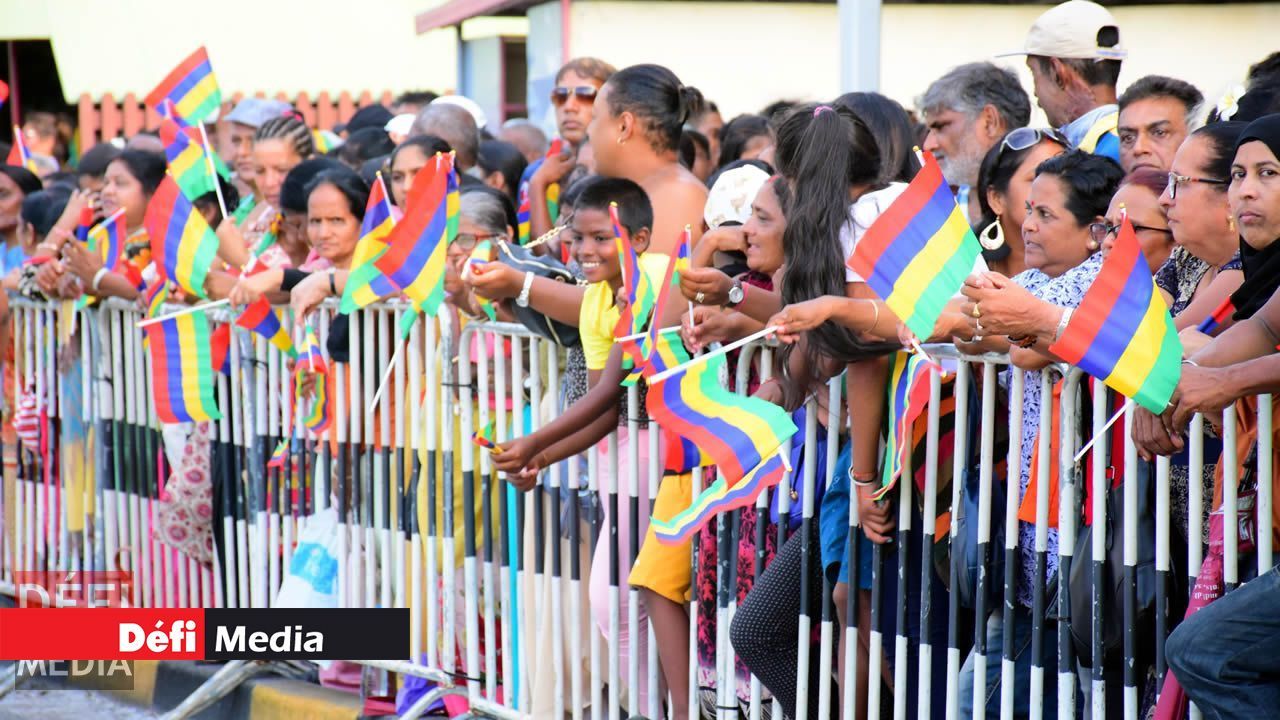
We may have encountered the word ‘independence’ several times last week as we have celebrated our 56th Independence and 32nd Republic this year. However, have we ever asked ourselves what this word means to the different generations of this nation? We cannot expect the same kind of emotion and feeling across different age groups as one may have his/her own experience of independence.
Publicité
Nevertheless, the deep emotions and feelings that were attached to independence, irrespective of whether one was for, or against it, seems to be fading away with the current growing generation. But is the latter to be blamed? The pre-independent generation has witnessed their predecessors being oppressed and flouted by colonialism, and the subjugation of their ancestors started to weigh them down.
Consequently, their immediate concerns and responses were to get these burdens off their shoulders, and they simply did not want to pass them to their upcoming generations. On the other hand, within the same generation, some were uncertain about independence and even went against it. Perhaps rightly from their perspective as they might have anticipated modern issues concerning equal opportunities and meritocracy.
Despite their different stance, they were deeply concerned about the question of independence as they knew that this would impact directly on their whole future. Accordingly, the concerns of a nation are contextual, that is, the socio-economic, and political, perception of meritocracy, priorities of the population, and many more aspects are far from being stagnant.
Thus, the immediate concerns of our current growing generation may be found within the different aspects mentioned rather than being independent. It does not necessarily imply that independence is being taken for granted, but it is quite evident that the emotions and feelings sparked by today’s struggles are washing away effortlessly the emotions and feelings one may attach to independence. Congruently, the question of whether the growing generation is to be blamed for their non-attachment is to some extent irrelevant, but not completely.
What is relevant in this case is, well undeniably, our independent and Republic state. Emotions and feelings may vary across generations but it is the duty of our current ‘nation builders’ to give the opportunity to our youngsters to develop a good understanding of our history and the importance of being an independent and Republic nation.
‘Nation builders’ do not necessarily imply selected citizens, for example educators only, it may include parents or grandparents who are inculcating essential values in their children. Very often the latters rightly associate independence to freedom, a very simple answer to the question of independence. Unsurprisingly, a very usual immediate counterargument is to question the cost of this freedom. This pattern of arguments and counterarguments is very similar to the pre- and post-independent times, and many youngsters are still questioning the relevance and importance of our independence. We should not close our eyes on this fact.
Furthermore, many students still asked whether we would not have been better off, in terms of a strong currency, nationality, meritocracy, and opportunity to study and work abroad, if we were dependent on a rich nation. Many have their gazes directed towards our neighbours of Réunion island. Now, what does one reply to this argument? A small attempt is made in the following matter.
As we may be aware the relatively bad socio-economic conditions during pre-independence convinced many international economists and colonial decision-makers, who were considerably short of ideas of how to fish the country out of that undesirable state, that the future was dull.
The famous British economist and Nobel prize winner, Professor James Meade, went to the extent of prophesying that Mauritius’ development projects were poor. Moreover, despite the precious natural resources of many African countries, the British were ready to give them their independence, as they did not want to sustain anymore their many colonies across the globe.
Accordingly, Mauritius was of no exemption from their policy of giving away independence, or in other words, their policy of getting rid of nations which were seemingly no more beneficial to them. In addition, Mauritius did not possess precious natural resources for them to continuously plunder as they did in many African colonies. In that vein, Mauritius had become a burden on them and they did not want to further invest in any kind of development. The illiteracy rate and standard of living of the people demonstrated their lack of effort and interest in the Mauritian population.
Was Britain not a rich country after several centuries of plundering the resources of others? Was Mauritius not part of the United Kingdom, and why there was so much disparities between the British and Mauritian populations. It should be noted that they had left many African countries in pitiful states during colonialism. As a result, independence was an inevitable response for more than fifty per cent of the Mauritian population.
At a very young stage of our post-independence, the then leaders and policy makers have rightly identified that our precious resource is our human resources and have banked every effort on enhancing these resources by providing free secondary education and free health services. That was a direct response to the apparent inadequacy of the British colony on the island, or to their unwillingness to improve the fate of the people. That philosophy of recognising and developing the human potential, which the British lacked pitifully, propelled the country into a nascent developing state in the mid-80s.
Moreover, from a nascent developing state to a developing state, the citizens have benefitted from the diverse economic activities, and have consequently raised their standard of living. The diversification of the economy was made possible due to ideas flourishing in the free and independent minds of our people. With independence, the child of a labourer could dream of becoming a teacher, doctor or lawyer, whereas, in the colonial era, the same child would be most probably destined to become a labourer.
Nevertheless, despite independence, we cannot pretend to be living a fairy tale. For example, it required protest from students in 1975 to trigger the movement for free secondary education, where many were injured during their encounter with the police force, and it was eventually achieved in January 1977 after the general election of 1976.
Similarly, many think that some fundamental democratic rights were quite hindered during the post-independent era, but not necessarily flouted. In addition to this, unfortunately, the rampant challenges and issues concerning our modern society made our youngsters question or shed doubts on our independence. Questions about food securities, meritocracy, unemployment of graduates who have studied fields which are not yet introduced, depression of our currency, drug addiction, climate change and environmental issues, energy crisis, creation of new economic pillars and cost of living are among many others which are haunting our nation. One may pertinently ask whether we are independent if we are dependent on more than 60% of importation for our consummation. As a consequence, this demands a lot of sacrifice, in terms of finance and priorities, from the population.
Sacrifice is a word which has been resounding through different generations. We should not forget the sacrifices of our ancestors, the pain on their whipped bodies may well have been forgiven but not forgotten. The sacrifices of our grandparents and parents who have woken up early and worked with all their might and dedication to give us a better future. The sacrifices of our current working population are contributing to our economic growth and to the well-being of the whole population.
We should also not forget that the job and services provided by one may be the needs of the other, that is, it is impossible to live in isolation and we would always be dependent on each other.
So how can we, as citizens of this country, pay tribute to all these hardworking and dedicated generations? Some citizens have the opportunity to be decorated during Independence and Republic Day, but what about those working in anonymity? Are their contributions not essential? One way we have been doing it but fail to recognise it is when we are performing the national anthem in front of our waving flag. It is important to understand that the emotions and feelings attached to the national anthem and flag should be the same emotions and feelings attached when thinking of the hard work, sacrifices and dedication of the different generations. Hence, it is a way to pay tribute and to show gratitude, despite all the challenges and issues we are facing. One may also argue that these challenges and issues are not exotic to our nation, as many nations are facing them.
To conclude, struggles may not end but what is important is that we are a nation that has been resilient through times, and hard times were never an excuse to give up. Easy was never promised but standing strong was inborn. Long live our Republic.
Mouvish Jhummun
Educator

Notre service WhatsApp. Vous êtes témoins d`un événement d`actualité ou d`une scène insolite? Envoyez-nous vos photos ou vidéos sur le 5 259 82 00 !















![[Blog] Coup de gueule - 1 er-Mai politique : entre illusions de foule et réalités électorales](https://defimedia.info/sites/default/files/styles/square_thumbnail/public/crowd.jpg?itok=O1Ag_jui)





